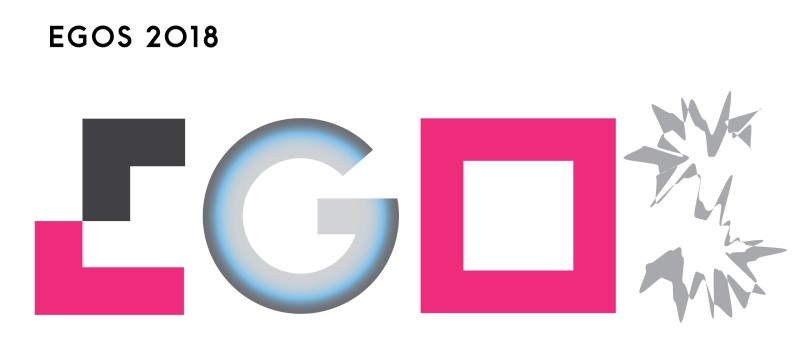Sub-theme 42: Analyzing Causal Complexity: A (Neo-)Configurational Perspective on Organizations
Call for Papers
Complex interdependencies are a common feature of organizational life. Such complexity is challenging and often surprising
in both its nature and its consequences. The multiple interdependencies of organizational phenomena mean outcomes are often
not only unexpected but also difficult to predict, and attempts to resolve one aspect of complex or wicked problems often
lead to new challenges elsewhere.
In recent years, organizational researchers have aimed to account for this
complexity with a theoretical shift toward understanding causally complex phenomena in a configurational manner (Fiss et al.,
2013). At the same time, there have been corresponding methodological developments aimed at tackling causal complexity, most
prominently the emergence of a set-analytic perspective (Ragin, 1987; 2000; 2008; Fiss, 2007; 2011). Along with other researchers
(Misangyi, 2016), we believe that these developments jointly present more than a resurgence of configurational thinking or
merely a new methodological approach – they suggest the emergence of a neo-configurational perspective. This neo-configurational
perspective aims to understand social and organizational phenomena in set-theoretic terms. Such an approach conceptualizes
cases as set theoretic configurations and allows for an analysis of multiple conjunctural causation (conjunctural causation,
multifinality, equifinality and an assessment of necessity and sufficiency).
In the current sub-theme, we
invite scholars to join us in exploring the key themes and boundaries of this neo-configurational perspective in a theoretical,
empirical, and methodological manner. We would like to start a conversation about the ways in which the neo-configurational
perspective may reshape the ways in which we theorize organizations and how we empirically engage with our data to understand
the rich complexity of relationships that characterize organizational life.
We invite papers that contribute
to a configurational understanding of organizational phenomena and welcome contributions from multiple theoretical traditions
and fields of organizational studies. We encourage theoretical, empirical, and methodological contributions that strive to
enhance our ability to capture causal complexity and dynamic nature of configurations. We especially welcome papers deploying
set-theoretic methods such as crisp and fuzzy set Qualitative Comparative Analysis (QCA) and related set-analytic and configurational
approaches.
Our sub-theme particularly invites contributions that focus on one or more of the following questions:
Surprising insights. How might a neo-configurational perspective shed new light on existing issues and problems? How might it reinvigorate organizational literatures that have become stale or deadlocked due to conflicting findings? How do set-theoretic methods challenge existing studies?
Theoretical connections. How does a neo-configurational perspective challenge existing theories? How can set-theoretic methods deepen existing theories or integrate different aspects of existing theories such as institutional theories, network approaches, resource dependency theories and others? How can the neo-configurational perspective provide new insights into these theories and streams?
Methodological innovation. What new methodological tools do we need to disentangle causal complexity? How can we make the methodological toolkit more robust and complementary? What can we learn from applying different methods to identical questions? On what assumptions are set-theoretic methods and QCA based and how can we assess/test these assumptions? What are the limits of set-theoretic methods? Can we really identify non-trivial necessary explanatory conditions in organizational studies and what is the theoretical relevance of this?
Empirical findings. We welcome original empirical applications of QCA in different fields of organizational studies (CSR, corporate governance, strategy, human resources, etc.) What can be learned from these applications? How do they challenge the current state of the art?
Uncovering (category) intersectionality. Many organizational phenomena are marked by the interconnected nature of social categorizations including race, class, and gender. How can a neo-configurational perspective help us understand systems of reinforcing advantages and disadvantages?
Institutional complexity. How might a neo-configurational perspective help us understand incompatible prescriptions from multiple institutional logics? What can it contribute to studying constellations of institutional logics?
Complex organizational forms. After a century of classic organizational forms and structures, new ways of organizing emerge, such as organizational networks, virtual organizations etc. How can a neo-configurational perspective clarify the processes and the complex conditions that make these forms (in-)effective?
Theorizing hybridity. Complexity can weaken difference in type, suggesting the existence of hybrid solutions or recombination instead of discrete categories and positions. How do we theorize such organizational hybridity and fuzzy organizational boundaries?
References
- Fiss, P.C. (2007): “Towards a set-theoretic approach for studying organizational configurations.” Academy of Management Review, 32, 1180–1198.
- Fiss, P.C. (2011): “Building better causal theories: A fuzzy set approach to typologies in organizational research.” Academy of Management Journal, 54 (2), 393–420.
- Fiss, P.C., Cambré, B., & Marx, A. (2013): “Configurational theory and methods in organizational research.” Research in the Sociology of Organizations, vol. 38. Emerald Group Publishing, Ltd.
- Misangyi, V.F. (2016): “Institutional complexity and the meaning of loose coupling: Connecting institutional sayings and (not) doings.” Strategic Organization, 14 (4), 407–440.
- Ragin, C. (1987): The Comparative Method: Moving Beyond Qualitative and Quantitative Strategies. Berkeley: University of California Press.
- Ragin, C. (2000): Fuzzy-Set Social Science. Chicago: University of Chicago Press.
- Ragin, C. (2008): Redesigning Social Inquiry: Fuzzy Sets and Beyond. Chicago: University of Chicago Press.


